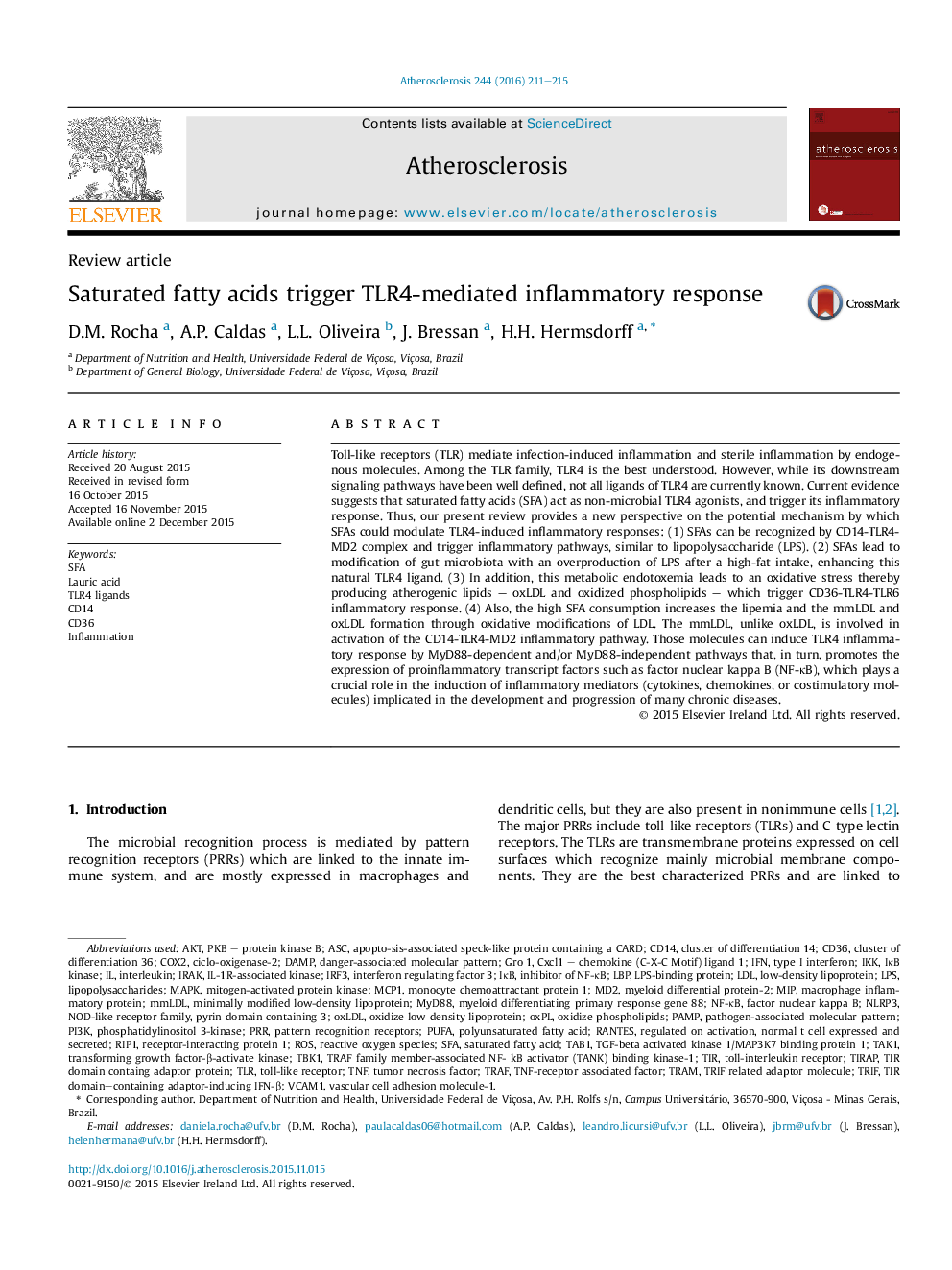| کد مقاله | کد نشریه | سال انتشار | مقاله انگلیسی | نسخه تمام متن |
|---|---|---|---|---|
| 5943670 | 1574721 | 2016 | 5 صفحه PDF | دانلود رایگان |

- SFA can trigger inflammatory pathways similarly to LPS.
- SFA leads to gut microbiota modification and LPS overproduction.
- Metabolic endotoxaemia induced by SFA raise the oxLDL and oxPL production.
- Also SFA increases the lipemia and the oxLDL and mmLDL production.
- Those molecules generated from SFA can induce the TLR4 inflammatory pathways.
Toll-like receptors (TLR) mediate infection-induced inflammation and sterile inflammation by endogenous molecules. Among the TLR family, TLR4 is the best understood. However, while its downstream signaling pathways have been well defined, not all ligands of TLR4 are currently known. Current evidence suggests that saturated fatty acids (SFA) act as non-microbial TLR4 agonists, and trigger its inflammatory response. Thus, our present review provides a new perspective on the potential mechanism by which SFAs could modulate TLR4-induced inflammatory responses: (1) SFAs can be recognized by CD14-TLR4-MD2 complex and trigger inflammatory pathways, similar to lipopolysaccharide (LPS). (2) SFAs lead to modification of gut microbiota with an overproduction of LPS after a high-fat intake, enhancing this natural TLR4 ligand. (3) In addition, this metabolic endotoxemia leads to an oxidative stress thereby producing atherogenic lipids - oxLDL and oxidized phospholipids - which trigger CD36-TLR4-TLR6 inflammatory response. (4) Also, the high SFA consumption increases the lipemia and the mmLDL and oxLDL formation through oxidative modifications of LDL. The mmLDL, unlike oxLDL, is involved in activation of the CD14-TLR4-MD2 inflammatory pathway. Those molecules can induce TLR4 inflammatory response by MyD88-dependent and/or MyD88-independent pathways that, in turn, promotes the expression of proinflammatory transcript factors such as factor nuclear kappa B (NF-κB), which plays a crucial role in the induction of inflammatory mediators (cytokines, chemokines, or costimulatory molecules) implicated in the development and progression of many chronic diseases.
Journal: Atherosclerosis - Volume 244, January 2016, Pages 211-215